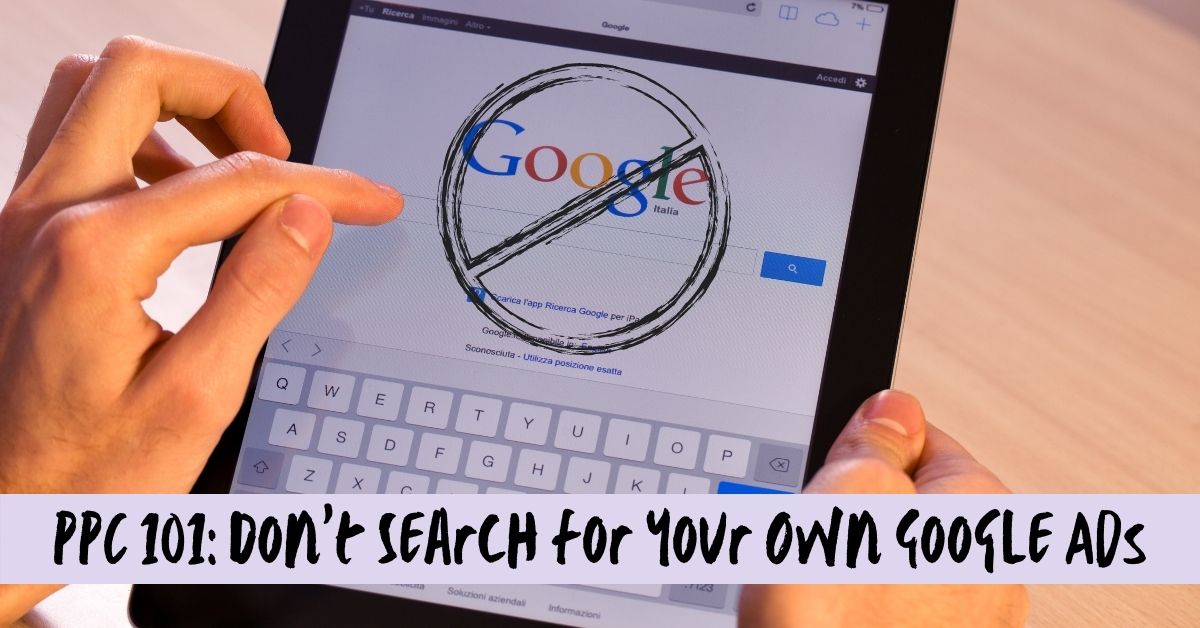PPC is a pay-per-click online marketing model in which marketers pay a fee every time an ad is clicked on. It is essentially a way of buying visits to your website instead of securing these visits organically through SEO. Google is one of the largest providers of PPC ads. Your healthcare practice is able to appear as one of Google’s supported links when someone searches for a keyword relevant to your services.
If you are already using pay-per-click (PPC) ads for your healthcare practice, good for you! Google ads are a very cost-effective way of getting more patients through your door.
Some business owners like to search Google for their ads to see how their ad looks ‘in the wild.’ It’s understandable why you would want to do this, but we’re here to tell you that this is the last thing you should do!
It is a common misconception that searching for your own ads is the best way to measure your campaigns’ effectiveness. It is not only an incredibly misleading way to measure the success of your campaign, but it is also detrimental to your PPC efforts.
Here are a few reasons it could derail your PPC efforts.
You might not find your ad, and that’s okay
There are various reasons why in any search, you won’t be able to see your own ad. Keywords are not the only aspect that dictates whether the ad is shown – there are other factors in play, such as location, ad schedules, and budget also contributes to whether your ad is displayed. Whenever you are searching for your own ad, you are taking away a real customer’s chance to come across it.
The danger of searching for, but not clicking on your ad
If you thought that no harm is done by merely searching for your ad, think again. When you search for a term and then don’t click on any ads, you tell Google that you didn’t find any of the displayed ads appropriate to what you’re searching for, which lowers your ad’s click-through rate (CTR).
CTR calculates your ad presence in search results (impressions) against the number of times it is clicked on. A low CTR says to Google that your ad is not useful for what this user was searching for. Ads with a lower CTR have lower quality scores, which means you have to pay more (per click) to get to the top of the search results.
Google provides ads based on your search history
Google also offers ads based on your previous search history. If you are searching for your own company on Google repeatedly but don’t click on your ad, you will stop seeing the ad after a while. That’s because Google’s device knows your machine and avoids displaying ads; it doesn’t think you like it. Because of your self-Googling, your ads show to everyone – but not to you.
Searching for your ad doesn’t give the right ‘impression.’
Searching for your ads increases the number of impressions obtained by each ad. This isn’t really a concern when checking once or twice, but it can be increased when done too frequently. This gives you a false idea of the number of users your ads are reaching. This means that the audience for your ads might seem overinflated, which damages the integrity of your PPC campaign data.
Are you looking to get started with PPC advertising? Contact us for a chat about your PPC needs and for help launching a pay per click campaign to drive quality leads to your healthcare practice.

